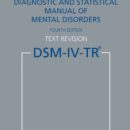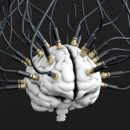Advanced ERP for OCD: how subtle rituals can limit your progress
What is exposure and response prevention (ERP) for OCD? As any good psychologist experienced in treating OCD can tell you, the most effective treatment for OCD is exposure and ritual prevention (ERP). You may also see this type of therapy referred to as exposure and response prevention. In this case, the semantics are immaterial; the concepts are exactly the same. ERP is a type of cognitive behavioral therapy (CBT) that is based on the premise that the best way to reduce your symptoms is to practice activities designed to trigger your anxiety and then resist any urges to ritualize. ERP has two main components: exposure – purposely doing activities that are designed to elicit your anxiety response prevention – actively resisting the urge to complete a ritual For example, for someone who worries about germs, an exposure might involve...
Read MoreOCD and DSM-V: Taking the “anxiety” out of OCD
Psychiatrists and psychologists continue to debate the fundamental nature of OCD, trying to decide whether or not OCD should continue to be classified as an “anxiety disorder.” In some ways, OCD overlaps with other anxiety-related conditions, such as panic disorder, phobias, social anxiety disorder, generalized anxiety disorder, and post-traumatic stress disorder (PTSD). In other ways, OCD is unique unto itself. Although the current version of the Diagnostic and Statistical Manual (the book that psychologists and psychiatrists use when making diagnoses) classifies OCD as an anxiety disorder, the next revision is likely to give OCD its own category of related conditions (see here). Regardless of your position on the conceptual issues involved in this change, there are many pragmatic benefits that arise from treating OCD-related conditions as distinct from the anxiety disorders. For example, it is likely that this change will ultimately...
Read MoreOCD & ECT (electro-convulsive therapy): Not a first-line treatment
If your only diagnosis is OCD and you don’t have any other complicating factors, be cautious when considering electro-convulsive therapy (ECT) for treating your OCD. ECT can be a very helpful intervention for many types of conditions (e.g., severe depression, bipolar disorder, schizophrenia), but it is not considered to be a first-line treatment for OCD. Unfortunately, I have encountered several individuals recently who have undergone ECT without first receiving a good trial of exposure and response prevention (ERP). Research indicates that medication and intensive ERP should be attempted prior to undergoing ECT, unless there is a good reason why these interventions are counter-indicated. If you have OCD and you are considering ECT, consult with a psychiatrist who specializes in treating OCD. He or she can advise you about your best course of action. Questions? Comments? Sound off...
Read MoreOCD guilt, shame, disgust, anxiety & depression: Why treatment sometimes fails (and what to do about it)
OCD isn’t just about anxiety. Although anxiety is certainly a prominent feature of the disorder, clinicians who only attend to anxious symptoms can easily overlook some of its other core features. As a psychologist in Palm Beach, Florida, I work closely with kids, teens, and adults throughout the greater Palm Beach, Fort Lauderdale, and Miami areas on strategies for recovering from OCD. In the patients I treat, anxiety is often accompanied by significant guilt, shame, disgust, and depression. These features are not necessarily related to, or caused by, anxiety; they can be distinct processes. If you (or your psychologist) conceptualize exposure and response prevention (ERP) as only a means to habituate to anxiety but fail to consider how treatment must also address these other features, you are likely to have a suboptimal treatment response and will continue to experience significant...
Read MoreOCD, ERP, & doubt sensitivity: Shattering the illusion of certainty
Many individuals with OCD hunger for certainty. It’s a craving that often can’t be easily sated. Early conceptions of OCD from the 19th century acknowledged this issue directly, in that OCD was often termed the “doubting disease.” It is this need for certainty, the need to eliminate doubt, that leads many people with OCD to perform repetitive behaviors, which are known as rituals. For example, it is doubt about whether one’s hands are sufficiently clean that leads one to engage in repetitive hand-washing rituals. Likewise, uncertainty about whether a stove has been turned off (and worry about potentially dire consequences) can underlie checking rituals. Many different types of rituals involve reassurance-seeking behaviors. For people with OCD who have intrusive bad thoughts (e.g., What if I secretly want to hurt a family member? What if I don’t believe in God...
Read MorePalm Beach trichotillomania (trich) support group
Okay, so in addition to the possible Palm Beach OCD support group, I am also thinking about forming a trichotillomania (trich) support group. For those of you who aren’t familiar with trichotillomania, it’s an impulse control disorder that is associated with compulsive hair-pulling behaviors. It is likely that trich will soon be officially reclassified as an OC-spectrum disorder in the upcoming DSM-V, which is the manual that psychiatrists and psychologists use when making mental health diagnoses. Possibilities for the group location include Palm Beach Gardens, Jupiter, Juno, or West Palm Beach. Miami and Fort Lauderdale locations might also be considered, but these are unlikely at this point. If you’re interested in this, please let me know. If you would like to receive email reminders about upcoming support groups, you can access our sign-up form here. Questions? Comments? Sound off...
Read More








